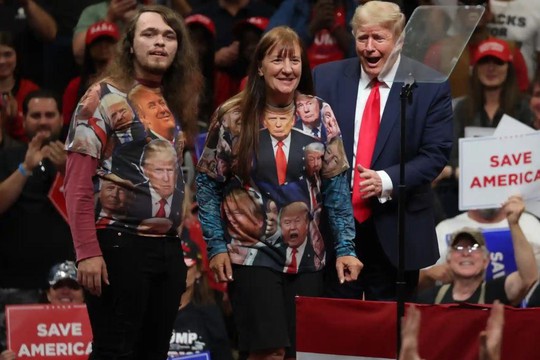The Republican president-elect is inaugurating a new era in US politics and perhaps for the world as a whole.
Photo: AP
The blowout victory of Donald Trump and the Republican party on Tuesday night will lead to major changes in important policy areas, from immigration to Ukraine. But the significance of the election extends way beyond these specific issues, and represents a decisive rejection by American voters of liberalism and the particular way that the understanding of a “free society” has evolved since the 1980s, writes at ‘The Financial Times’ Francis Fukuyama, a senior fellow at Stanford’s Center on Democracy, Development, and the Rule of Law, and author of ‘The End of History and the Last Man’.
When Trump was first elected in 2016, it was easy to believe that this event was an aberration. He was running against a weak opponent who didn’t take him seriously, and in any case Trump didn’t win the popular vote. When Biden won the White House four years later, it seemed as if things had snapped back to normal after a disastrous one-term presidency.
Following Tuesday’s vote, it now seems that it was the Biden presidency that was the anomaly, and that Trump is inaugurating a new era in US politics and perhaps for the world as a whole. Americans were voting with full knowledge of who Trump was and what he represented. Not only did he win a majority of votes and is projected to take every single swing state, but the Republicans retook the Senate and look like holding on to the House of Representatives. Given their existing dominance of the Supreme Court, they are now set to hold all the major branches of government.
Some of the most important changes will come in foreign policy and in the nature of the international order. Ukraine is by far the biggest loser; its military struggle against Russia was flagging even before the election, and Trump can force it to settle on Russia’s terms by withholding weapons, as the Republican House did for six months last winter.
Trump has privately threatened to pull out of NATO, but even if he doesn’t, he can gravely weaken the alliance by failing to follow through on its Article 5 mutual defence guarantee. There are no European champions that can take the place of America as the alliance’s leader, so its future ability to stand up to Russia and China is in grave doubt. On the contrary, Trump’s victory will inspire other European populists such as the Alternative for Germany and the National Rally in France.
East Asian allies and friends of the US are in no better position. While Trump has talked tough on China, he also greatly admires Xi Jinping for the latter’s strongman characteristics, and might be willing to make a deal with him over Taiwan. Trump seems congenitally averse to the use of military power and is easily manipulated, but one exception may be the Middle East, where he is likely to be wholeheartedly supportive of Benjamin Netanyahu’s wars against Hamas, Hizbollah and Iran.
There are strong reasons for thinking that Trump will be much more effective in accomplishing this agenda than he was during his first term.
The breadth of the Republican victory, extending from the presidency to the Senate and probably to the House of Representatives as well, will be interpreted as a strong political mandate confirming these ideas and allowing Trump to act as he pleases.
read more in our Telegram-channel https://t.me/The_International_Affairs

 11:06 11.11.2024 •
11:06 11.11.2024 •























